CMP Collegiate Rifle Team Feature: UK Rifle Team
August 30, 2020
Civilian Marksmanship Program▸College Connection▸CMP Collegiate Rifle Team Feature: UK Rifle TeamCMP plans to feature each of our countries great Rifle Teams and learn a little bit more about collegiate rifle marksmanship. Stay tuned this week as we feature the University of Kentucky Rifle Team! Let’s explore what makes the UK program special. Go Big Blue! #bbn (big blue nation)
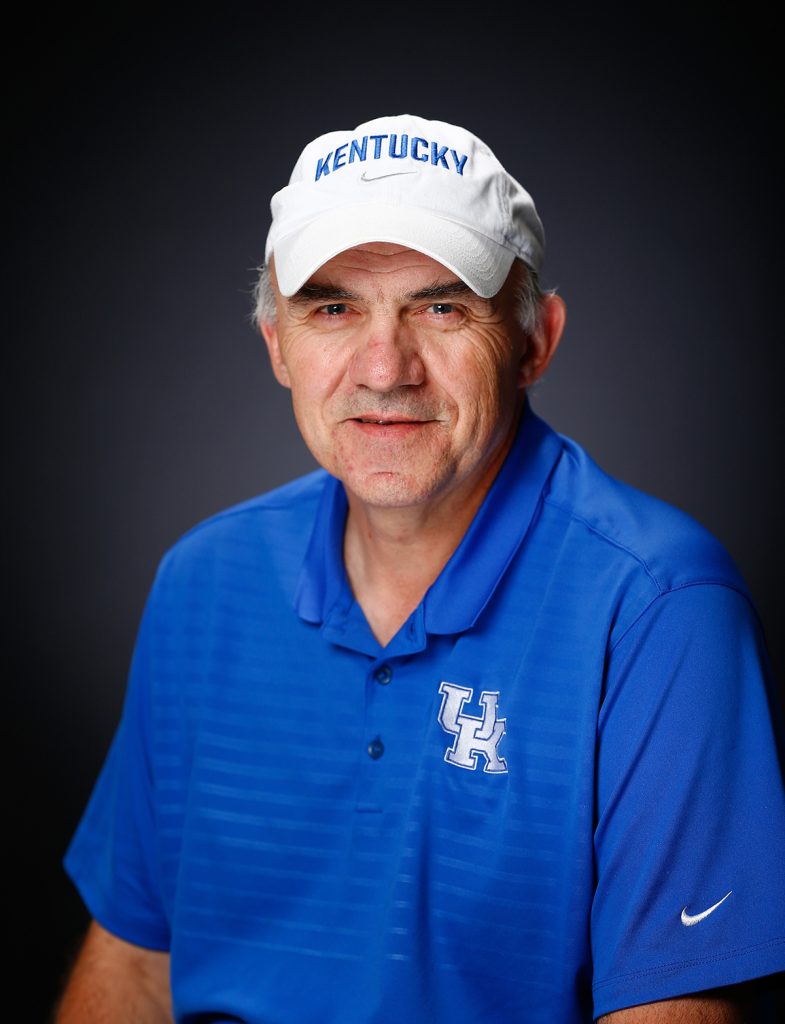
College Coach Questions
Name: Harry Mullins
College Coach for: University of Kentucky
Were you a shooter before coaching?
Yes, I shot for the University of Kentucky. I was on the team for all four years. It was so long ago I cannot even remember the shooting stuff exactly. We were in the non-scholarship category with most of the teams and were a Top 5 team most seasons.
Favorite reason for coaching:
My favorite reason for coaching is getting to watch the athletes develop and grow over their four years in the program – seeing them reach some of their dreams and goals and watching how they continue to grow as young adults and athletes.
What is a day as your shooter like?
A normal day on Mondays, Wednesdays and Fridays is training, classes, workouts, study and tutor sessions. On Tuesdays and Thursdays, training starts at 7 a.m. We train as a team for two and a half hours and then have a short team meeting. After that, the rest of the day is class, study hall, tutors and personal time.
Advice for junior shooters wanting to compete in college?
I think the best thing a junior shooter can do to get ready to compete in college is to learn how to structure themselves and set priorities. Being able to stay organized and on top of your academics during your high school years helps you be the best you can be on the range once in college.
Any additional comments/stories/advice you’d like to add?
I think for most shooters, being part of a college rifle team is a great experience. Most athletes before college are just part of a club. Once they get to college, they get to experience being part of a team and have common goals. Knowing that your work impacts the team’s outcome is something not many get to experience before college. Embracing this and being the best you can be will make the college path a great experience.
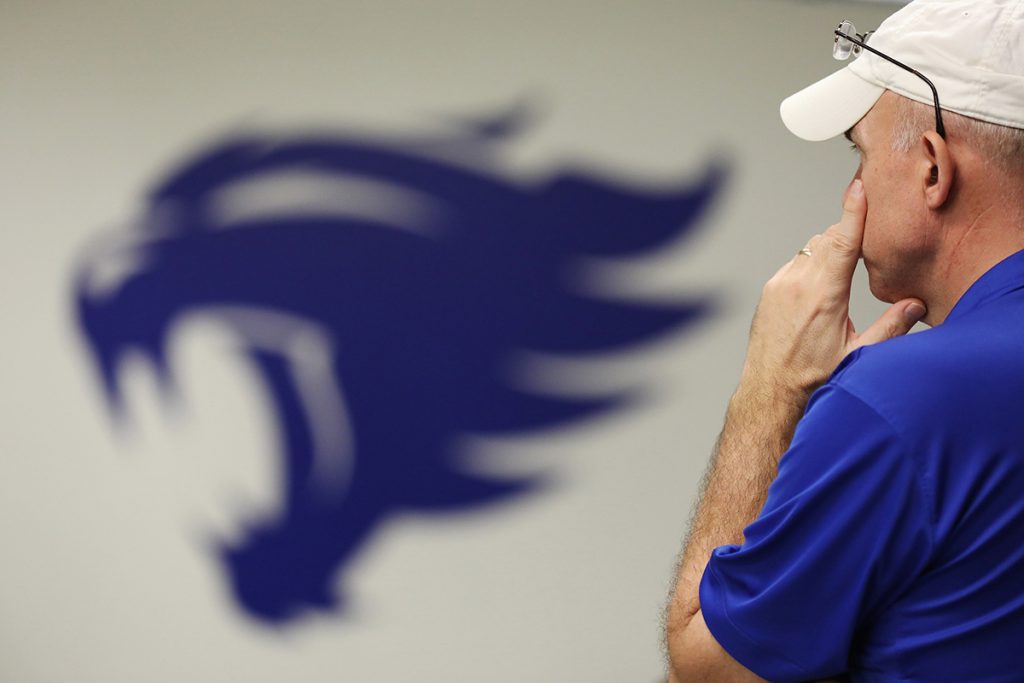
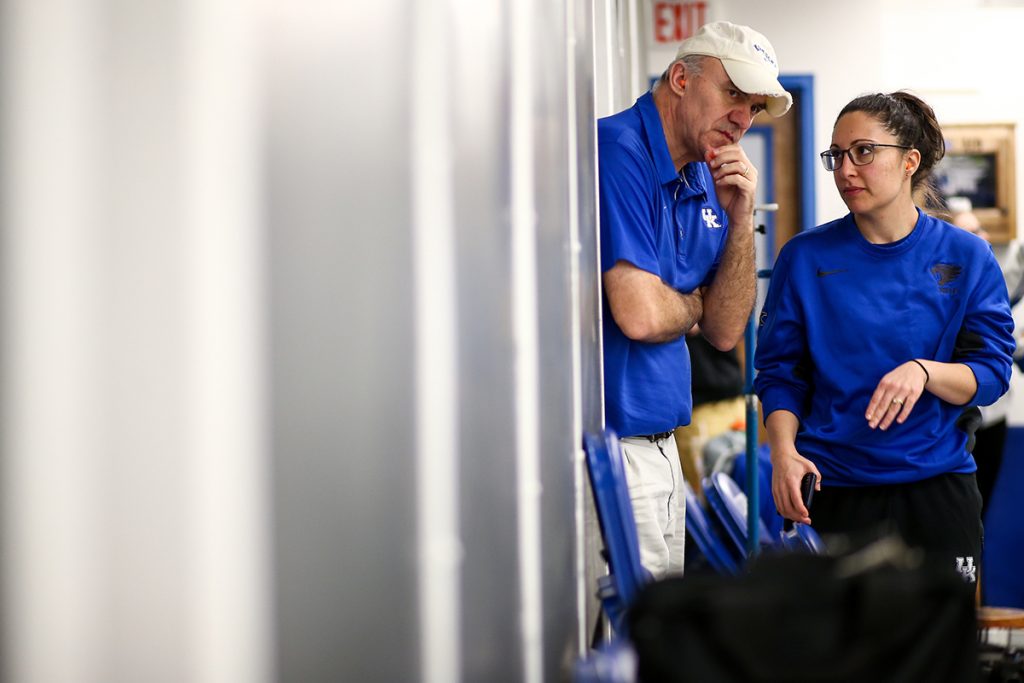
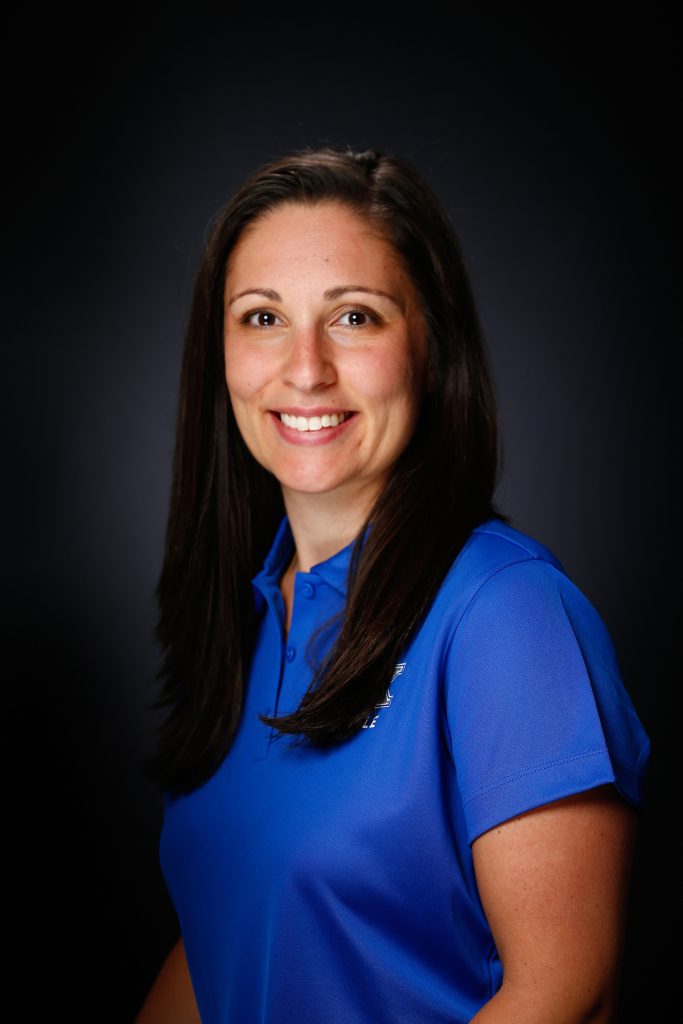
Name: Rena Curvey
Hometown: Winchester, MA
Assistant College Coach for: University of Kentucky (UK)
What college did you shoot for? What do you have a degree in?
I competed for the University of Mississippi (Ole Miss). I graduated from Ole Miss with a Bachelor of Science in Exercise Science. I also have two Master of Science degrees from UK: Coaching & Sport Psychology and Counseling Psychology. I am currently working towards my PhD in Counseling Psychology at UK.
What did you like about being a CMP Junior Rifle Camp Counselor?
The opportunity to be a CMP counselor for two years was a great experience as a college student. I learned a lot about myself as a coach and made many great friends. I also enjoyed my five years as a CMP camp assistant director. In this role, I really enjoyed working with the counselors and assisting with the organization of camps.
What is your biggest challenge as a coach?
For me, my biggest challenge as a coach is figuring out what each athlete needs from me. In the last few years, I have made an effort to develop a relationship with each athlete and customize my approach. A question I ask all my athletes weekly when we meet individually is “What do you need from me?” I get a wide range of answers depending on the athlete and the situation. This approach can be time consuming, but I have found it to be very successful and fulfilling as a coach.
Advice for college athletes and graduating college seniors?
My advice for college athletes is commit. Commit to yourself, your goals, your team and your coaches. You only get one opportunity to be a college athlete, and it’s a privilege many young people are not afforded. Push yourself, your teammates and have fun. Take advantage of all the resources that are offered, and enjoy the journey.
My advice for graduating college seniors: Hang in there and finish strong, it can be a year full of many emotions. It is the beginning of an end, and there are always unknowns after you graduate college – regardless of how much you have planned.
It can be challenging as a senior because it’s likely your fourth year of competing and you are sad it is almost over, but you are also ready to move on at the same time. You owe it to yourself, your team and your coaches to finish strong. Show humility and gratitude as you leave the program and the university that has become your home. Lastly, have compassion with yourself as you transition to the next chapter of your life.
Any additional comments/stories/advice you’d like to add?
Why I coach: As a college athlete, it is important to remember your sport is not who you are as a person, it is simply something you choose to do. Many college athletes overidentify with their sport and associate their personal worth with their athletic performance. Unfortunately, sometimes organizations, family members and coaches do this as well, which can be very damaging for athletes.
As a coach, I always push my athletes athletically because I want them to be successful and accomplish their goals. However, I always acknowledge my athletes as young people first – I want them to be happy, healthy, successful people and elite athletes during their time at Kentucky. At the end of the day, being a college student, athlete and an emerging adult all at the same time is hard! It sometimes takes support in multiple areas to successfully navigate the student-athlete experience. The complexity is my favorite part of the job.
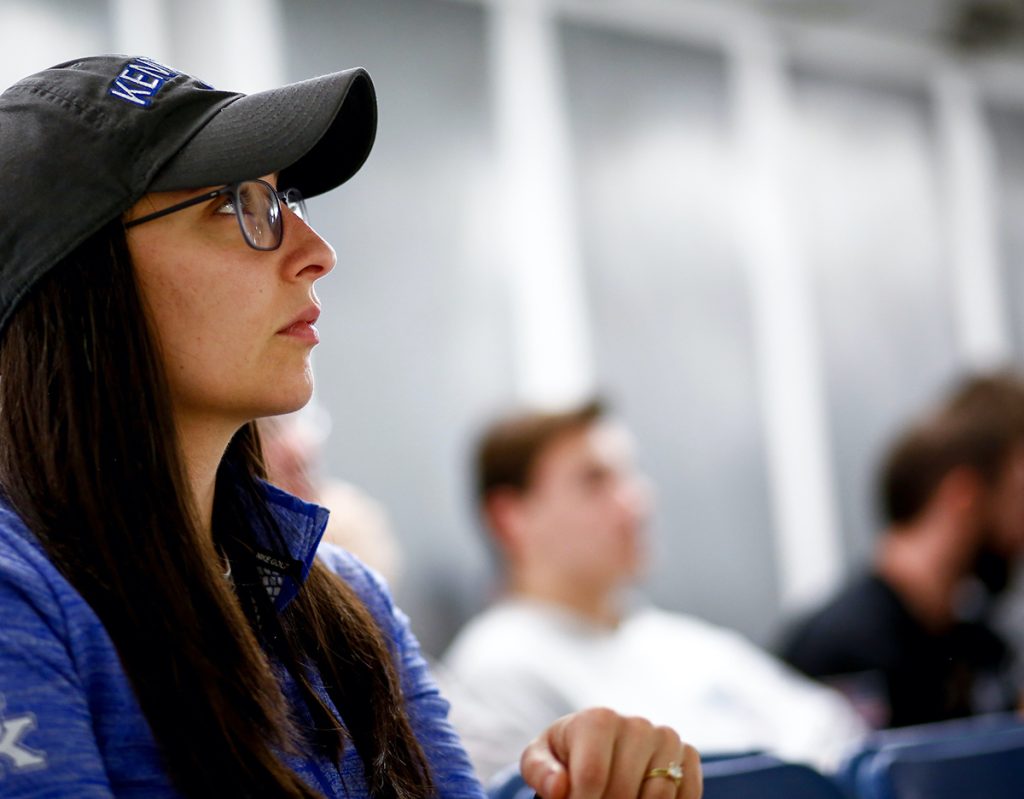
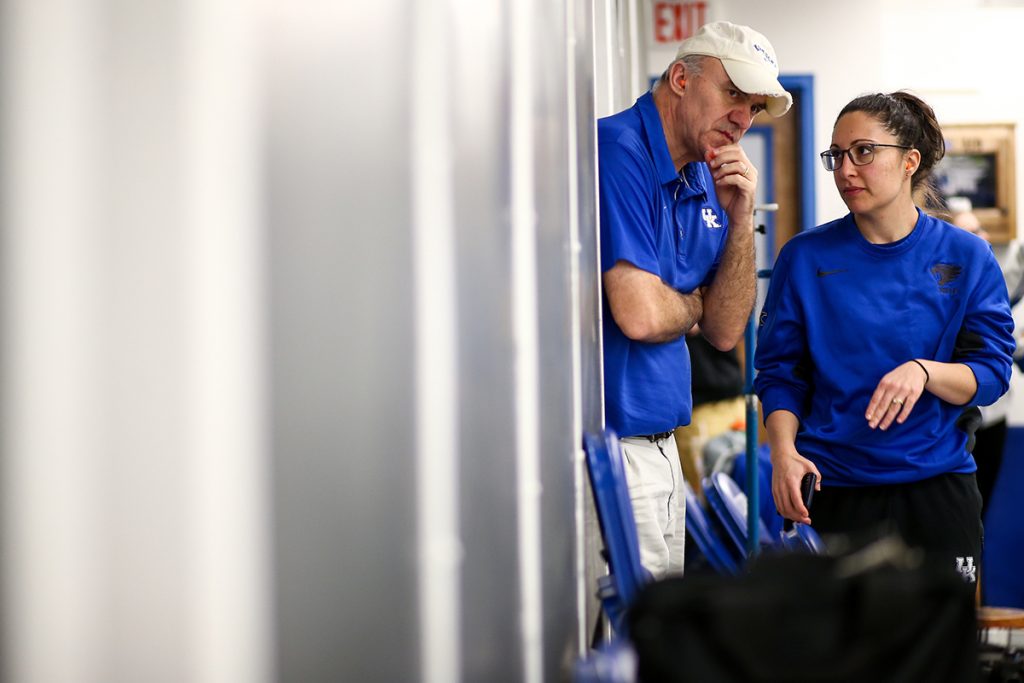
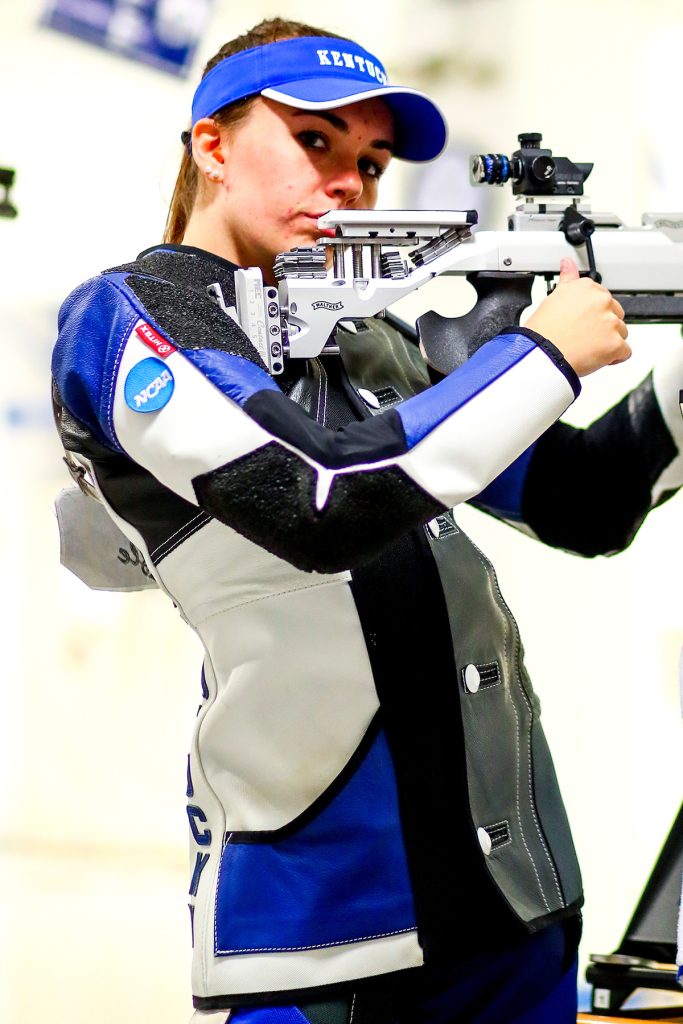
Name: Hailee Sigmon
Hometown/Junior Team: Kiowa, Colorado; NTC Shooting Club & Elbert County 4-H
What is your major? Why? Favorite class?
Career & Technical Education (Ag Education/Communication)
I chose to study agriculture education due mostly to my background. I grew up on a small family farm and was very active in the 4-H program. I learned first-hand growing up how important agriculture was, which developed my desire to inform consumers and youth about agriculture. My favorite class so far has been Agricultural Law.
How old were you when you got involved in rifle?
I started shooting in 4-H at 10 and began Olympic style rifle at 15.
Favorite rifle (air rifle vs .22) and stage (kneeling, prone, standing)?
.22 and Kneeling (As a freshman, if you would have told me I’d say this, I would have told you that you were crazy.)
What do you do outside of rifle to train and better yourself (workout, meditate, etc.)?
Our team works out together every Monday, Wednesday, and Friday, but much of our team works out beyond these time constraints, including myself. I also work with our sports psychology professional at the university on practicing mindfulness and to help my headspace on match day.
Future plans/goals for rifle and life?
Currently, I am unsure of what exactly my future holds in store as I have flirted with the idea of furthering my rifle career by possibly getting involved with coaching. I have also looked into working in communications/marketing within the beef industry.
Any additional comments/stories/advice you’d like to add?
Somebody once told me that you can achieve anything if you set your mind to it. I have personally learned that to be true and that no matter what obstacle may lay ahead, you can overcome it and come back even stronger.
Surround yourself with individuals that will push you to be better. Learn to take advice from EVERYONE. While that Olympian might help take you to the next level, that new shooter might remind you of a fundamental thing you have forgotten to pay attention to overtime.
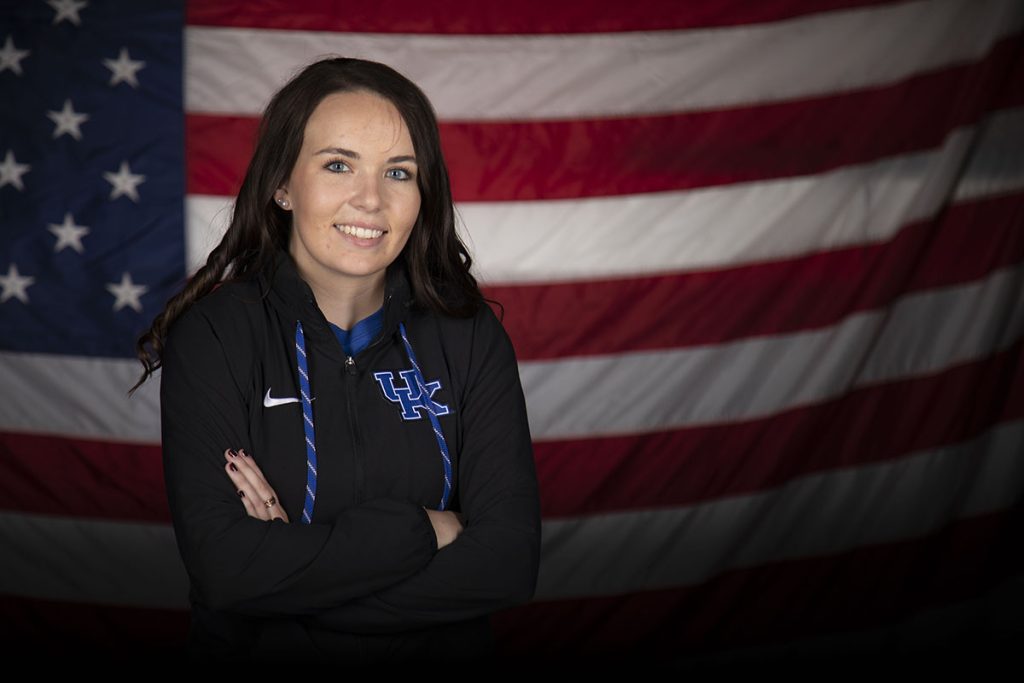
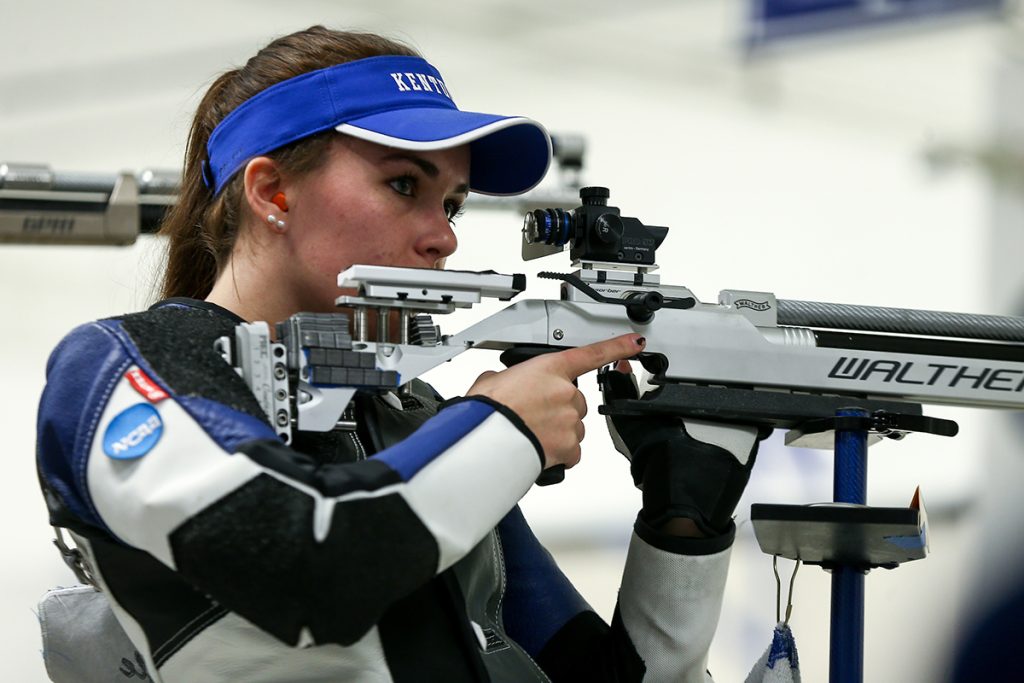
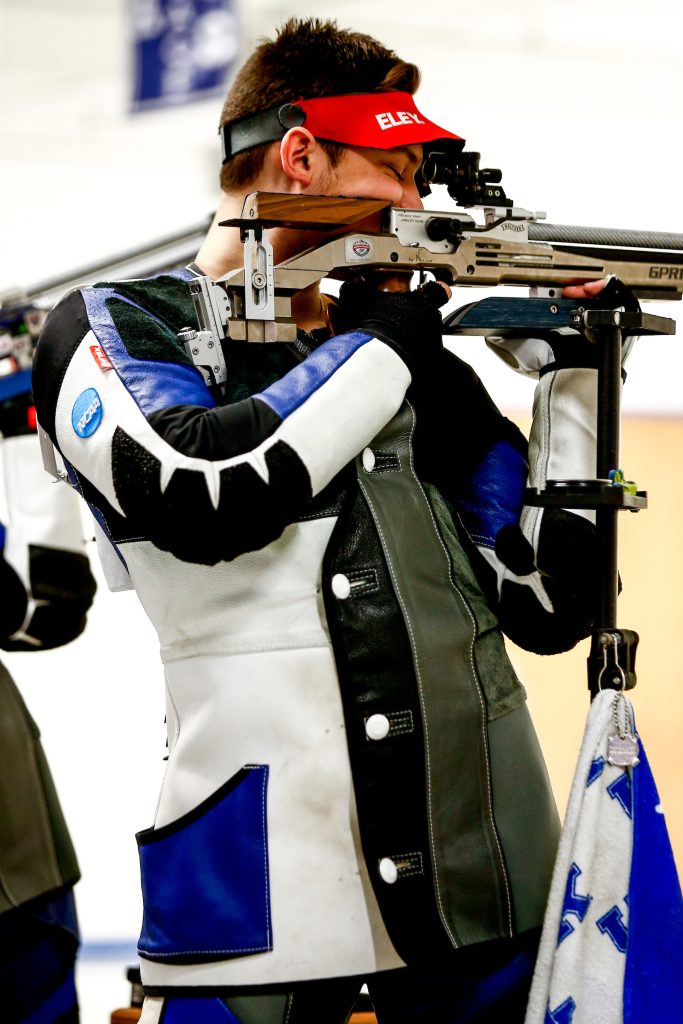
Name: Richard Clark
Hometown/Junior Team: Jackson, Michigan; Riverside Shooting Club
What is your major? Why? Favorite class?
Name: Richard Clark
Hometown/Junior Team: Jackson, Michigan; Riverside Shooting Club
What is your major? Why? Favorite class?
I am majoring in kinesiology. I chose this major with hopes to attend medical school or get involved with college athletes and work within an athletic department after completing school.
How old were you when you got involved in rifle?
I began shooting with my dad and grandfather when I was three years old, in my back yard. I began shooting the competitive disciplines at the age of six, with shorter air rifle, and took on smallbore at the age of eight.
Favorite rifle (air rifle vs .22) and stage (kneeling, prone, standing)?
My favorite discipline to shoot is 3P. It’s always a blast having a different challenge in each position that keeps you on your toes. My favorite stage during a 3P match is kneeling.
What do you do outside of rifle to train and better yourself (workout, meditate, etc.)?
Our rifle team partakes in workouts together that bring us closer together. Workouts include lifts, core and conditioning. Another way I prepare myself outside of the range is by using the Inner Balance app and a heart math sensor to work on my breathing, as well as heart-brain coherence.
Future plans/goals for rifle and life?
I currently plan to finish my undergraduate degree in kinesiology and focus on my rifle training for a couple years after graduation, in pursuit of a 2024 Olympic dream.
Any additional comments/stories/advice you’d like to add?
The best advice I could give to an incoming freshman or junior shooter would be to buy into the program you are a part of. Use its resources to better your ability and quality of life. Be grateful for the opportunity to get up every morning and train with a group of people who love the sport just as much as you do. We never have to go train or work hard, but we get the opportunity to do so, and we must use it to the best of our ability.
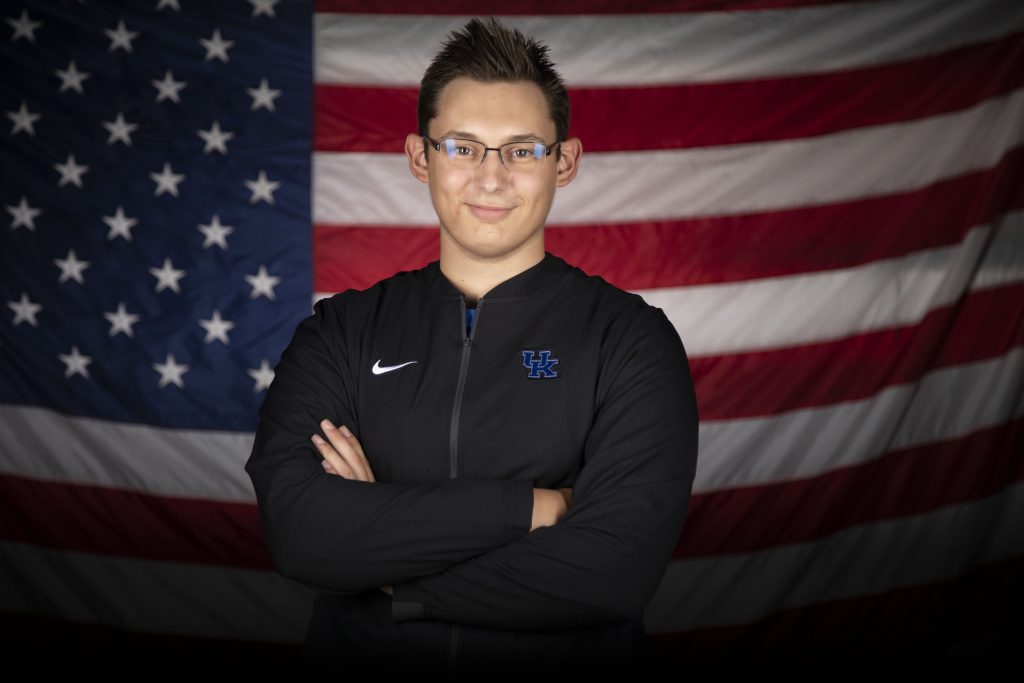
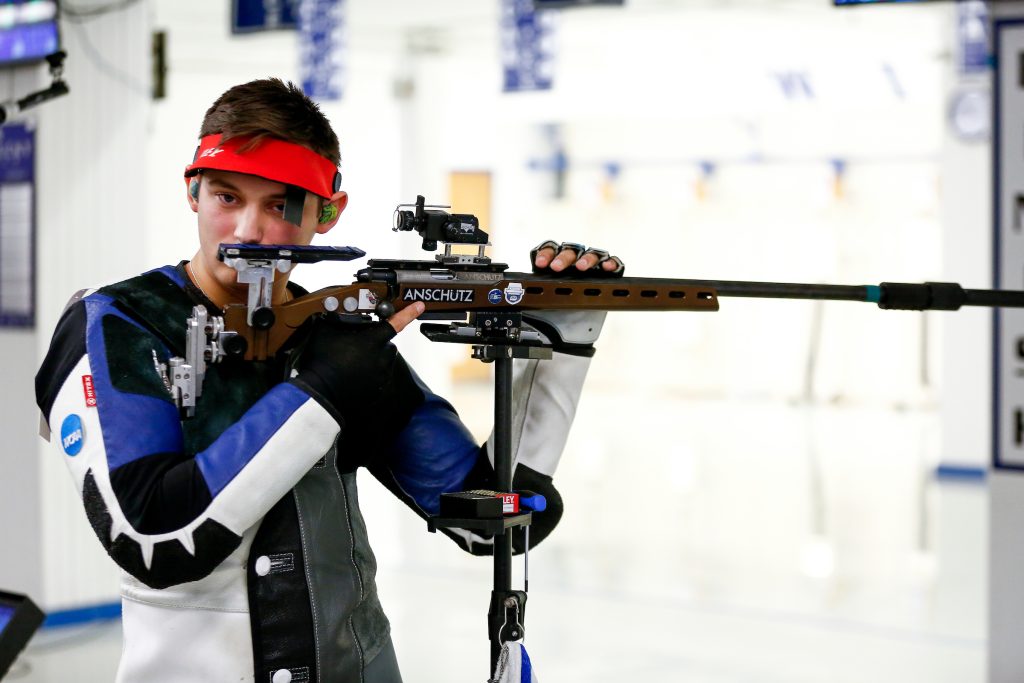
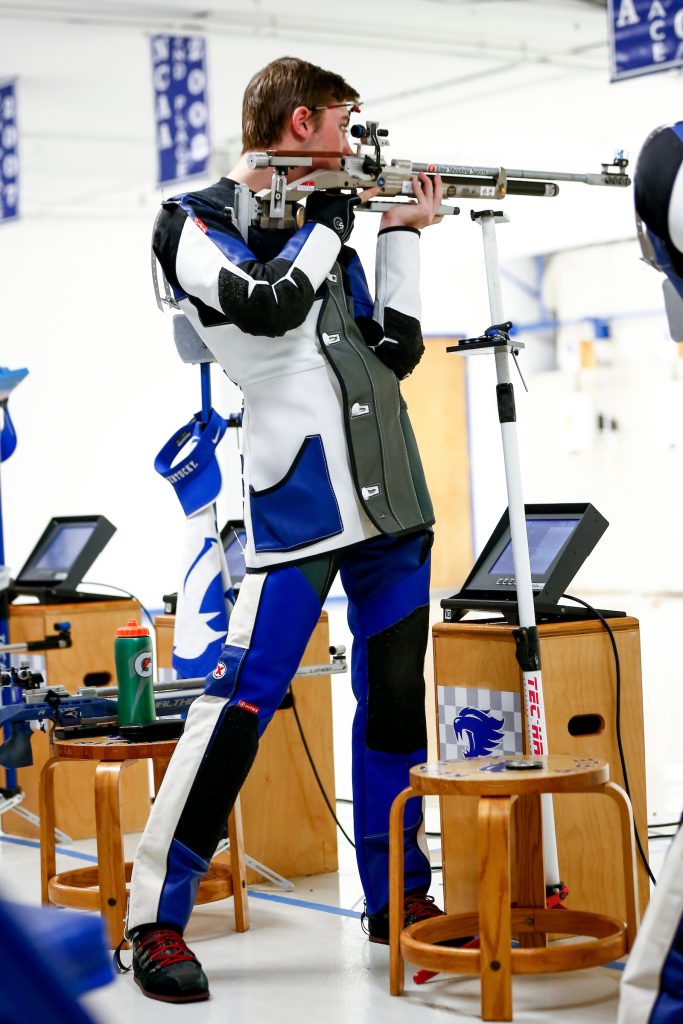
Name: Will Shaner
Hometown: Colorado Springs
Junior Team: National Training Center Juniors
What is your major? Why? Favorite class?
My major is economics, and I like it because it gives a unique insight on how the world works and the consequence of certain actions, so you can plan ahead better. My favorite class so far would also be my economics class. It has allowed me to look at things on a larger scale and better understand financials.
How old were you when you got involved in rifle?
I started shooting when I was 8 years at a small 4-H program in Rifle, Colorado.
Favorite rifle (air rifle vs .22) and stage (kneeling, prone, standing)?
Favorite gun and position would be .22 prone. From the outside, it looks like a simple position, but trying to perfect it has always given me a constant challenge, which I love.
What do you do outside of rifle to train and better yourself (workout, meditate, etc.)?
Outside of the shooting range, I do workouts for the core and back to help stabilize myself in position. Mindfulness and visualization are also a big part of my routine as it helps me stay calm under pressure and focus on the basics of competitive rifle.
Any additional comments/stories/advice you’d like to add?
In the future, I would like to keep shooting at The University of Kentucky, and once graduated, tryout for the 2024 Olympics. After that, I will join WCAP (U.S. World Class Athlete Program) and continue my shooting career with the hopes of becoming a coach.
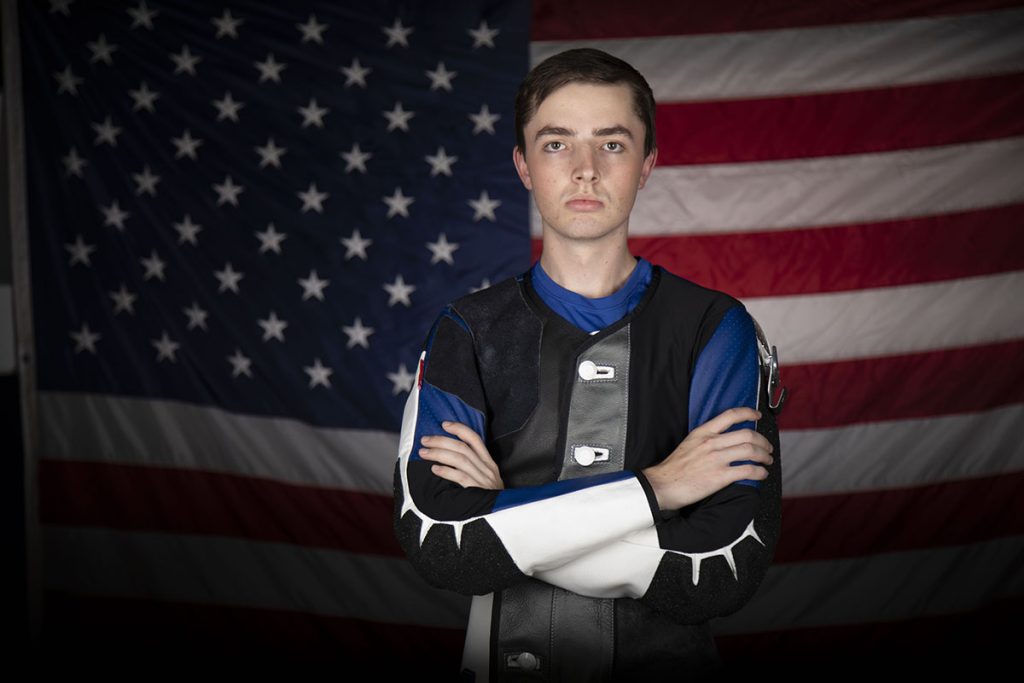
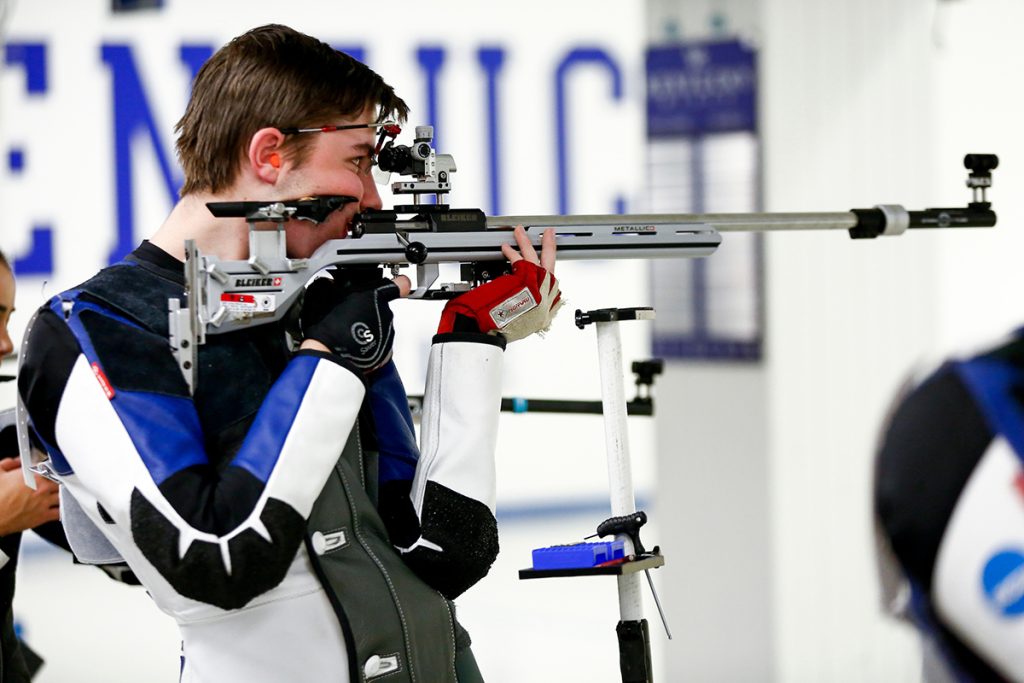
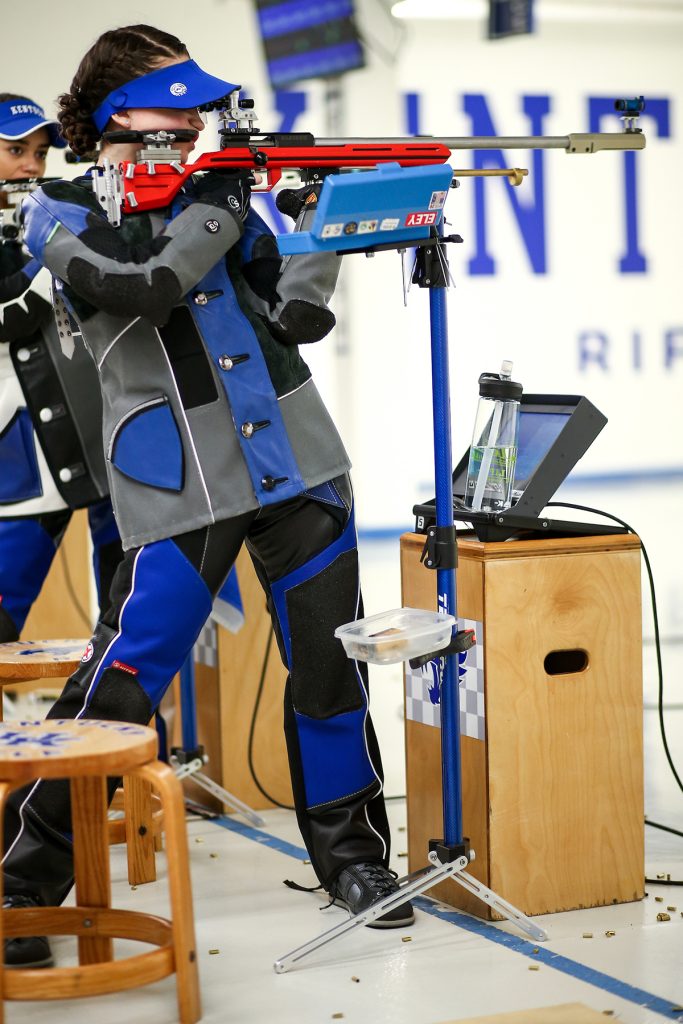
Name: Mary Tucker
Hometown/Junior Team: Sarasota, Florida; Hollywood Rifle
What is your major? Why? Favorite class?
I just switched into kinesiology (out of equine science) because I think it will work better for my intended career of coaching. I am really looking forward to the physiology and psychology classes.
How old were you when you got involved in rifle?
I shot sporter when I was 15 and got into precision when I was 16.
Favorite rifle (air rifle vs .22) and stage (kneeling, prone, standing)?
I like and tend to be more well known for air gun, but I enjoy smallbore also. Standing is my favorite position, and I really like kneeling too.
What do you do outside of rifle to train and better yourself (workout, meditate, etc.)?
I work out with the team three days a week and try to do something physical on the other two days. I really heavily rely on visualization and mental training off the range.
Future plans/goals for rifle and life?
I plan to continue shooting through my collegiate years and go to the 2024 Olympics. After that, I would like to be a coach.
Any additional comments/stories/advice you’d like to add?
My advice to shooters is this: Work hard and set big goals. Shoot more than people say you need to and take all training seriously – if you do that, you will see huge improvements. Also, set your goals “too big.” If people tell you it’s unreasonable, then you know it’s the right size. #nolimits
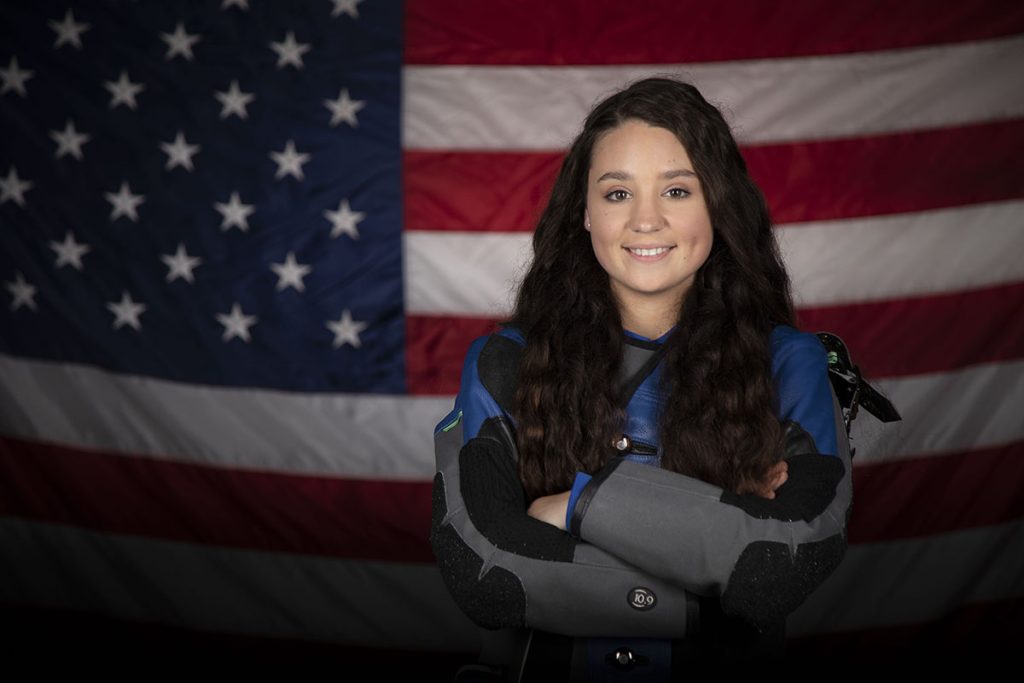
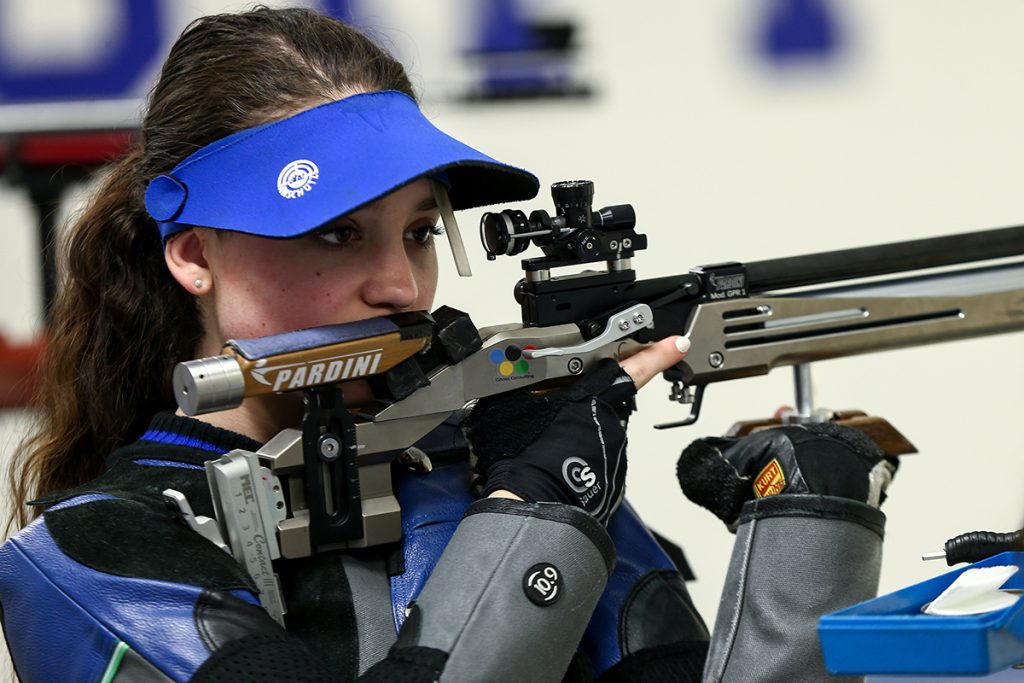
Go Big Blue. As a UK alumnus, it is great to see the success of this program. In my day I recall that the rifle team was using Buell Armory where we had Army and USAF ROTC. It is good to see shooting sports growing among the youth of our commonwealth and nation. There is more information on the program and videos here https://ukathletics.com/sports/rifle#
I would like to learn more about the apps for heart and mind coherence with breathing, and mindfulness. Any future articles or responses to this question would be appreciated!
We will see if we can gather additional information on this topic.
Thanks,
Christine
Excellent article full of inspiring tips for fishing athletes as well as coaches. Thanks CMP and UK for doing this!!